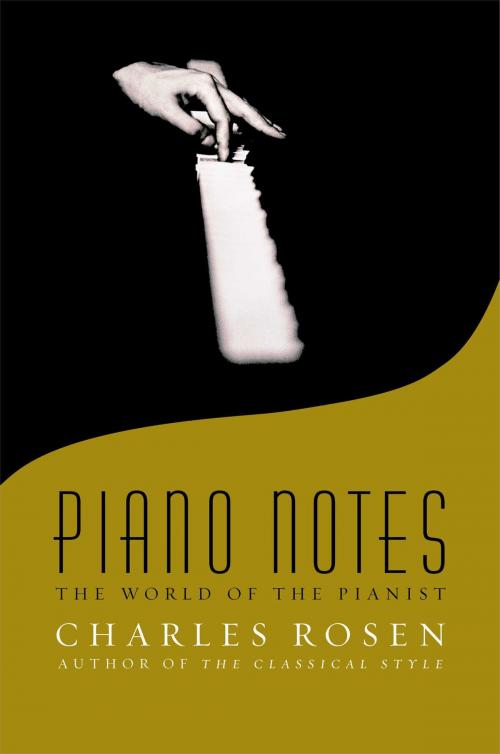Piano Notes
The World of the Pianist
Nonfiction, Entertainment, Music, Music Styles, Classical & Opera, Classical, Instruments & Instruction, General Instruments| Author: | Charles Rosen | ISBN: | 9781439135228 |
| Publisher: | Free Press | Publication: | October 29, 2002 |
| Imprint: | Free Press | Language: | English |
| Author: | Charles Rosen |
| ISBN: | 9781439135228 |
| Publisher: | Free Press |
| Publication: | October 29, 2002 |
| Imprint: | Free Press |
| Language: | English |
Charles Rosen is one of the world's most talented pianists -- and one of music's most astute commentators. Known as a performer of Bach, Beethoven, Stravinsky, and Elliott Carter, he has also written highly acclaimed criticism for sophisticated students and professionals.
In Piano Notes, he writes for a broader audience about an old friend -- the piano itself. Drawing upon a lifetime of wisdom and the accumulated lore of many great performers of the past, Rosen shows why the instrument demands such a stark combination of mental and physical prowess. Readers will gather many little-known insights -- from how pianists vary their posture, to how splicings and microphone placements can ruin recordings, to how the history of composition was dominated by the piano for two centuries. Stories of many great musicians abound. Rosen reveals Nadia Boulanger's favorite way to avoid commenting on the performances of her friends ("You know what I think," spoken with utmost earnestness), why Glenn Gould's recordings suffer from "double-strike" touches, and how even Vladimir Horowitz became enamored of splicing multiple performances into a single recording. Rosen's explanation of the piano's physical pleasures, demands, and discontents will delight and instruct anyone who has ever sat at a keyboard, as well as everyone who loves to listen to the instrument.
In the end, he strikes a contemplative note. Western music was built around the piano from the classical era until recently, and for a good part of that time the instrument was an essential acquisition for every middle-class household. Music making was part of the fabric of social life. Yet those days have ended. Fewer people learn the instrument today. The rise of recorded music has homogenized performance styles and greatly reduced the frequency of public concerts. Music will undoubtedly survive, but will the supremely physical experience of playing the piano ever be the same?
Charles Rosen is one of the world's most talented pianists -- and one of music's most astute commentators. Known as a performer of Bach, Beethoven, Stravinsky, and Elliott Carter, he has also written highly acclaimed criticism for sophisticated students and professionals.
In Piano Notes, he writes for a broader audience about an old friend -- the piano itself. Drawing upon a lifetime of wisdom and the accumulated lore of many great performers of the past, Rosen shows why the instrument demands such a stark combination of mental and physical prowess. Readers will gather many little-known insights -- from how pianists vary their posture, to how splicings and microphone placements can ruin recordings, to how the history of composition was dominated by the piano for two centuries. Stories of many great musicians abound. Rosen reveals Nadia Boulanger's favorite way to avoid commenting on the performances of her friends ("You know what I think," spoken with utmost earnestness), why Glenn Gould's recordings suffer from "double-strike" touches, and how even Vladimir Horowitz became enamored of splicing multiple performances into a single recording. Rosen's explanation of the piano's physical pleasures, demands, and discontents will delight and instruct anyone who has ever sat at a keyboard, as well as everyone who loves to listen to the instrument.
In the end, he strikes a contemplative note. Western music was built around the piano from the classical era until recently, and for a good part of that time the instrument was an essential acquisition for every middle-class household. Music making was part of the fabric of social life. Yet those days have ended. Fewer people learn the instrument today. The rise of recorded music has homogenized performance styles and greatly reduced the frequency of public concerts. Music will undoubtedly survive, but will the supremely physical experience of playing the piano ever be the same?















